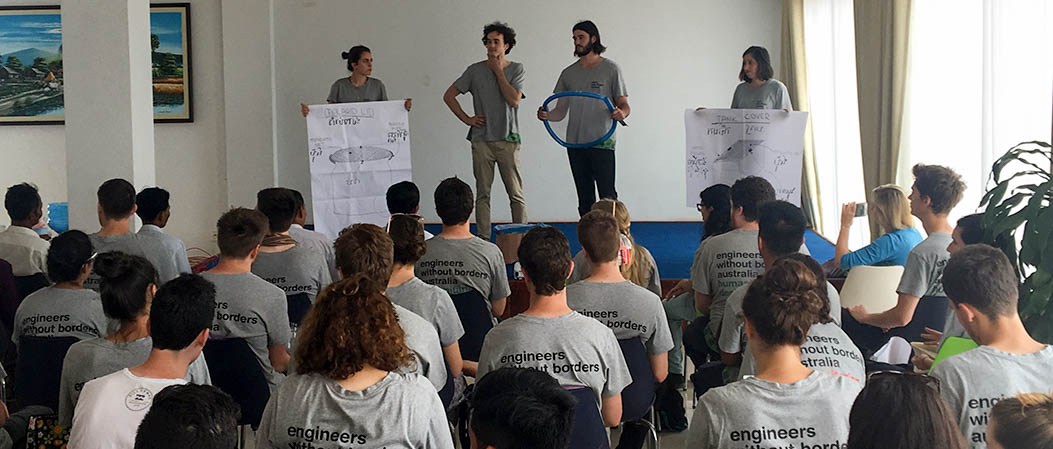The New Colombo Plan – Funding students to travel and learn with EWB Australia.
By Mikaela Day (Reproduced with permission from Mojo Correspondent)
The opportunity for Australian university students to travel as part of their degree while leaving a sustainable and ecologically friendly footprint seems like a deal that is too good to pass up. In a bid to create stronger relationships with Australia’s neighbours, the Department of Foreign Affairs and Trade offers scholarships to undergraduate students wanting to travel to the Indo-Pacific.
The New Colombo Plan has provided scholarships for 10,000 Australian students since its introduction in 2014. One organisation that has already seen the benefit of these scholarships is Engineers Without Borders Australia (EWB).EWB’s training program coordinator Joli Price said the scholarship allows for more students to participate in their programs and connect young Australians to their Asian neighbours.
“The New Colombo Plan has enabled a generation of Australian students to connect with Asia which is completely unprecedented and will have huge impact going forward,” she said.
EWB is helping Australian students participate in international ecotourism through study tours to Cambodia, Malaysia, India and Nepal that focus on humanitarian engineering and human-centered design.
“It’s important for students as part of their university education to experience empathy and see to what it is like to live in someone else’s shoes,” Ms Price said, “The best way to do that is to take people overseas and get them to see things first hand.”
In June 2016 more than 80 students attended two EWB design summits in Cambodia. Through a partnership with the local NGO, Cambodian Rural Development Team (CRDT), the students were able to experience a homestay in a rural community.
CRDT’s aims are to contribute to environmental conservation and raise rural living standards in Cambodia. In 2015 the organisation hosted 1346 tourists that created an income of US$47,000 for the rural communities who participated. More than US$5000 was contributed to environmental conservation. CRDT project manager Dim Bin said ecotourism is a very important activity for Cambodians and the opportunity for tourists and locals to learn from each other creates strong relationships.
“Engineers Without Borders is very important for the community. One you can bring the income to the community and second, you can provide new technology for the community,” Mr Bin said. “This is very important to them.”
Commune Chief of the Cambodian village of Wat, located on the Mekong river island of Koh Chraeng, Kao Roeurng would love more tourists to visit his village. “I feel fascinating for them coming because I never meet a foreigner like this before, like happy and fascinated,” he said. “I would like to learn from them and learn from each other and also I would like to see their idea to help us.”
With more programs like the engineering design summit becoming available for students to credit into their degree and the opportunity to receive money to pay for it, ecologically sustainable tourism is benefiting.
Learn about or apply to EWB's Humanitarian Design Summit program.
[Kao Roeurng interview conducted via a Khmer/English translator. Feature photo (student) by Nick Parkin]


